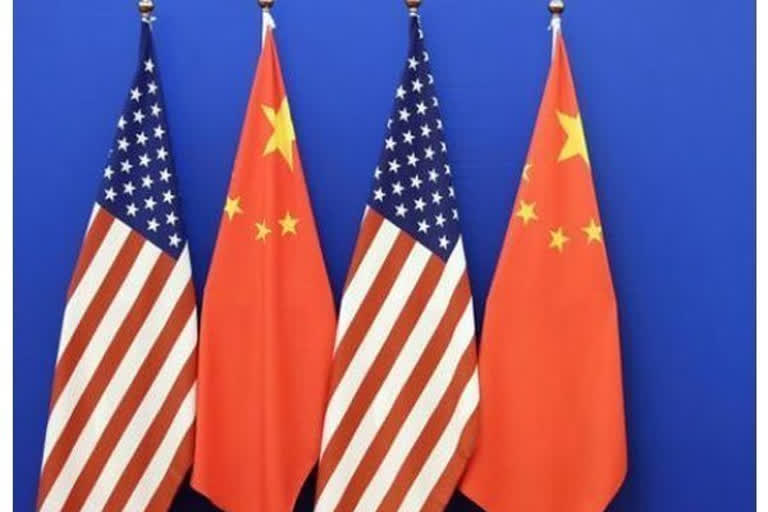Washington DC: As an attempt to scrutinise the financial relations with China, the House of Representatives has passed a bill requiring the companies to disclose information about any ties to foreign governments and the Chinese Communist Party.
Politicians from both parties have criticised China's lack of transparency in its financial system, saying it could be putting American investors at risk of fraud.
Chinese law restricts auditors from transferring certain company financial information out of the country, limiting its visibility to U.S. regulators.
Many major Chinese companies do not comply with American regulatory standards, including Baidu, China Mobile, PetroChina and the Semiconductor Manufacturing International Corporation, according to the Public Company Accounting Oversight Board, the U.S. auditing regulator. Under the new legislation, they could eventually be pushed off American stock exchanges if China does not change its financial practices.
Read:| China vows retaliation after US ends preferential status for HKong
Senator John Kennedy, the Louisiana Republican who sponsored the bill in the Senate, said U.S. policy had permitted China to "flout rules that American companies play by," creating a dangerous situation for American investors in public companies.
"Today, the House joined the Senate in rejecting a toxic status quo, and I'm glad to see this bill head to the President's desk," Kennedy said.
The legislation showed that the United States "has adopted a discriminatory policy against Chinese companies" and that "the right way to solve the problem is for all parties concerned to strengthen cross-border regulatory cooperation in a frank and open manner," Hua Chunying, a spokeswoman for China's Foreign Ministry, said before the vote.
Beijing officials were frustrated with the American stance on the issue, said the people familiar with China's economic policymaking. These people said, China has tried hard for more than two years to reach a compromise, and perceives the issue as an all-or-nothing stance by the Trump administration is demanding extensive financial records from Chinese companies.
China is less worried if the new bill comes into force. The stock markets of Shanghai and Hong Kong are much larger and deeper than they were a generation ago, and many companies are often higher than in New York. Therefore, Chinese companies can raise money at home if the United States makes them unwelcome, said people familiar with China's economic policymaking.
Until recently, Chinese stock exchanges did have one important shortcoming: Only profitable companies can start selling shares. That meant fast-growing but unprofitable companies, especially in the tech industry, often turned to the United States instead.
Two years ago, the Shanghai Stock Exchange created an additional market that does allow unprofitable but fast-growing companies to sell shares and obtain a listing. That market is the Science and Technology Innovation Board, usually known as the STAR market, the New York Times reported.
The Trump administration has gone through a series of measures aimed at severing economic ties between the United States and China, with little sign of giving up in the last few months.
These measures have focused on the financial investments that connect the world's two largest economies. Last month, Trump issued an executive order banning US investment in a list of Chinese companies with ties with the military.
The Securities and Exchange Commission has also proposed regulations that would prohibit Chinese companies from conducting initial public offerings on American stock markets or delist Chinese companies that didn't comply with American auditing rules. Under pressure from the Trump administration, a federal retirement fund also halted plans this year to invest in Chinese companies, the New York Times further reported.
Read:| Trump inks order banning Americans from investing in companies backing PLA
On Wednesday, the Customs and Border Protection also restricted imports of goods cotton-made from Xinjiang, the far western region where China has detained as many as a million Uighurs and other ethnic minorities in internment camps and prisons.
The administration has accused several companies of using forced labour to make their products and said Wednesday that it would block imports produced by the Xinjiang Production and Construction Corps, an economic and paramilitary group that plays an important role in Xinjiang's development, or its affiliates.
The corps is responsible for a substantial amount of cotton production in Xinjiang, which grows 85 per cent of the cotton in China. It also runs detention facilities that use Uighurs and other Muslims as a slave or forced labour to farm and process cotton, U.S. customs officials said.
The two countries have sparred over a range of issues in recent times, China's move to impose national security law in Hong Kong, its human rights violation in Xinjiang and territorial aggression in the South China Sea have all drawn fierce criticism from Washington.
ANI



